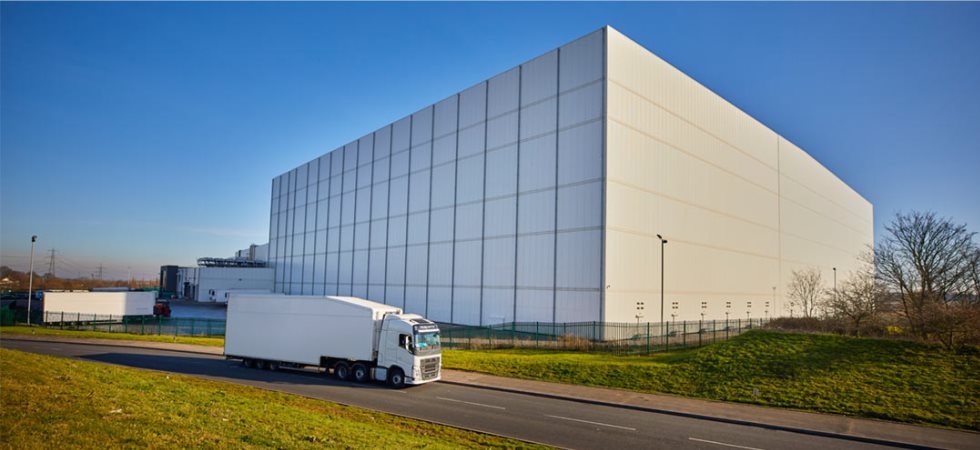The Cold Chain Federation (CCF) has called on government to ease the planning restrictions “currently hampering” installation of renewable energy infrastructure and to provide grant funding for large capital energy efficiency investments.
The CCF’s new report entitled The Cold Store of 2050: Maximising Efficiency to Reduce Emissions & Drive UK Energy Transformation argues that the cold storage sector is vital to support the “the forthcoming transformation of the UK’s energy landscape.”
The report explores how cold storage facilities could evolve in light of the UK government’s commitment to a net zero economy by 2050. It details the technologies which could become widespread and the barriers to their adoption, which includes government restrictions on the installation of renewable energy technologies.
Opportunities detailed in the report for cold stores to achieve net-zero by 2050 include:
- On-site energy generation: cold storage sites could significantly increase the inclusion of renewable technologies such as solar panels and wind turbines
- Combined Heat and Power (CHP): where a business can source fuel for a biomass boiler, or feedstock for an anaerobic digester plant, or such a time that hydrogen replaces piped gas, CHP could provide an efficient alternative to energy from the grid
- Centralised cooling: suitable for some operations, ‘centralised cooling’ sees a single system provide refrigeration for multiple facilities and businesses within a local system or district
- Demand side response: ‘storing’ energy by overcooling to allow switching off for a longer period of time to support grid balancing
- Energy storage: hosting physical batteries to store energy.
Achieving net-zero by 2050
Tom Southall, CCF policy director, said:“UK cold storage operators are looking towards a net zero future and there are some fantastic examples of the pioneering use of developing technologies such as innovative temperature monitoring systems and automation to dramatically improve energy efficiency.
“Our industry is investing in its sustainable future and this report provides valuable insight into not only tomorrow’s technologies, but also the new role cold storage can play in the UK’s transition to a net zero economy.”
Southall continued: “The cold storage industry encompasses a wide variety of operations and facilities so components of the cold store of 2050 will vary for each site: our vision outlines the technologies and opportunities which could be implemented in a typical operation.
“Consistent across the board however, is that a series of changes are needed for this vision to become reality, not least for government to ease the planning restrictions currently hampering installation of renewable energy infrastructure and to provide grant funding for large capital energy efficiency investments, particularly for smaller operators. We will be making the case to government for these changes to come to fruition.”









